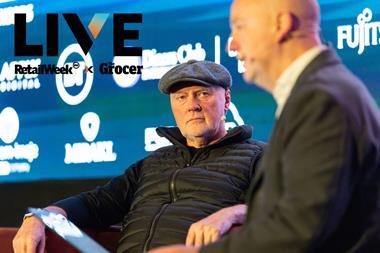
In 2005 I headed up the insight team at Sainsbury’s. We were a year into the Making Sainsbury’s Great Again turnaround. Working hard.
Someone from Nielsen came to see me, with a presentation, predicting that Aldi and Lidl were going to grow significantly, and explaining how.
I was impressed and remember thinking that I should reflect on it. But it never really happened. We were consumed in the turnaround, carefully watching against the others in the so called ‘big four’. We spent little time talking about Aldi or Lidl.
Looking back, I wish I’d spent more time on it, given what was to happen in the next 20 years. I can try to justify it. Their combined share was less than 4% (19% now). Most of the switching to and from Sainsbury’s came from the big four. And we did make great progress over several years.
But on another level? I regret it. How could it happen?
It’s not unusual. Call it the baby elephant phenomenon. Something seismic is growing but we choose to ignore it for now. Because the industry is so frenetic, we let ourselves think that these are big questions for tomorrow. But the longer we do that, the more we load the dice against future success. The baby elephant grows until it is a proper elephant in the room. And there is a reckoning.
Get out of your bubble
So what can you do to recognise and respond to baby elephants as soon as possible?
First, get out of your bubble. Look at what is happening in other countries. Look at what is happening in related categories or in food service. Listen to radical voices in the industry. Encourage people to say the unsayable. Don’t celebrate conformism.
Second, disrupt before you’re disrupted. Internet grocery has brought profit challenges. But we should credit retailers, especially Tesco, for going all in on internet shopping early. Ocado has prospered, but imagine how much better they’d have done in an uncontested space. More recently, retailers have been struggling to match Gousto and Hello Fresh but they’ll need to keep trying, because those boxes are special. It’s better to cannibalise yourself than let someone else do it.
Third, incentivise for the long term. Baby elephants don’t matter this year, but they will matter in 10 years. Why can’t incentive plans be stretched over a longer time? Could those representing employees on pension plans have a louder voice in strategic planning? If you incentivise for the next three or five years, don’t be surprised if that’s where people focus their attention.
Finally, you need the wisdom to identify the biggest issues and ignore the hype. What is really going to move the dial? Harnessing AI? GLP-1s? I think so. The breakdown of traditional mealtimes? I think not. The UPF debate? I’m not sure.
You can’t be certain about the future, but you can position yourself better for it.
Jeremy Garlick, partner at Insight Traction



















No comments yet